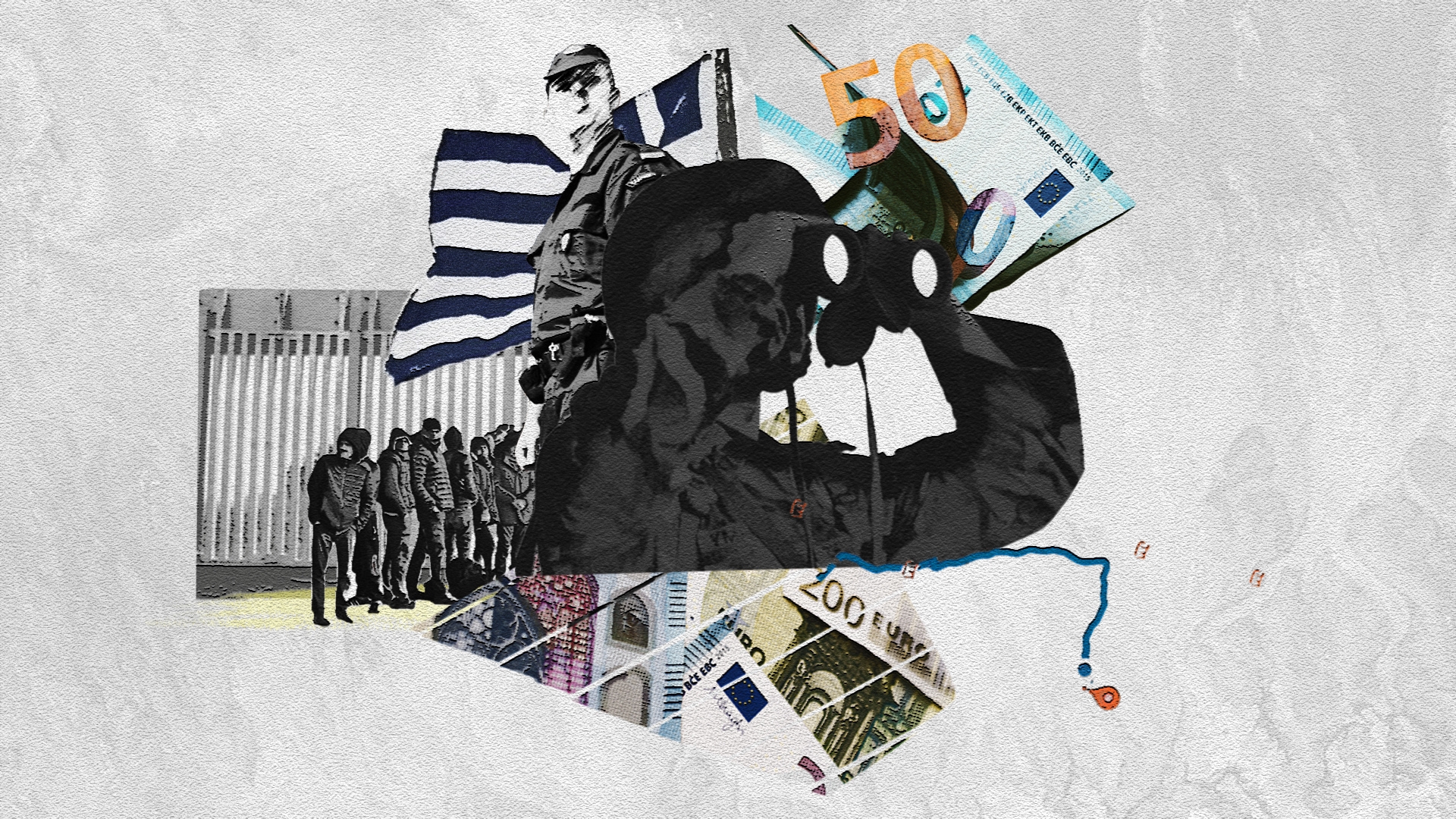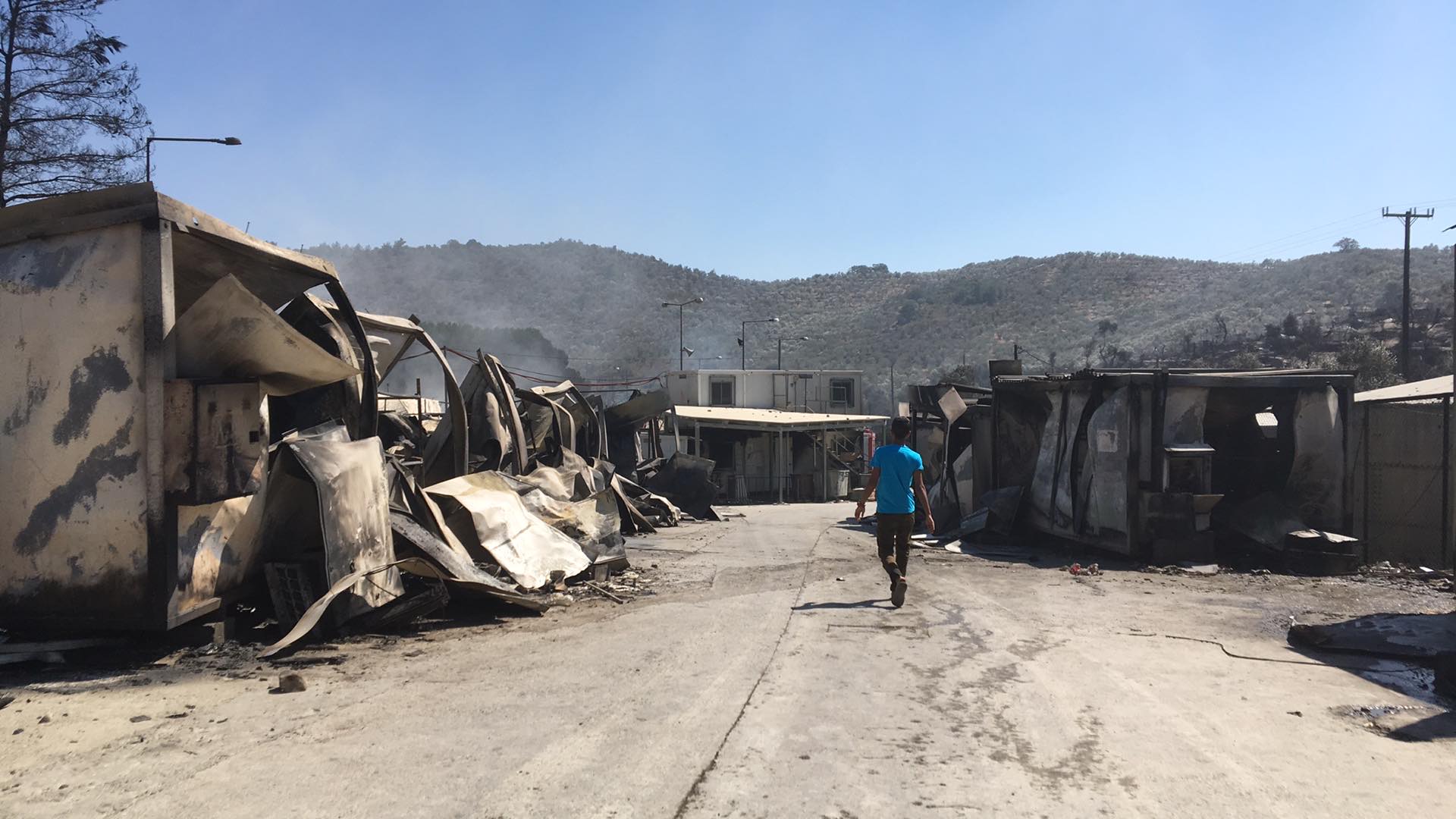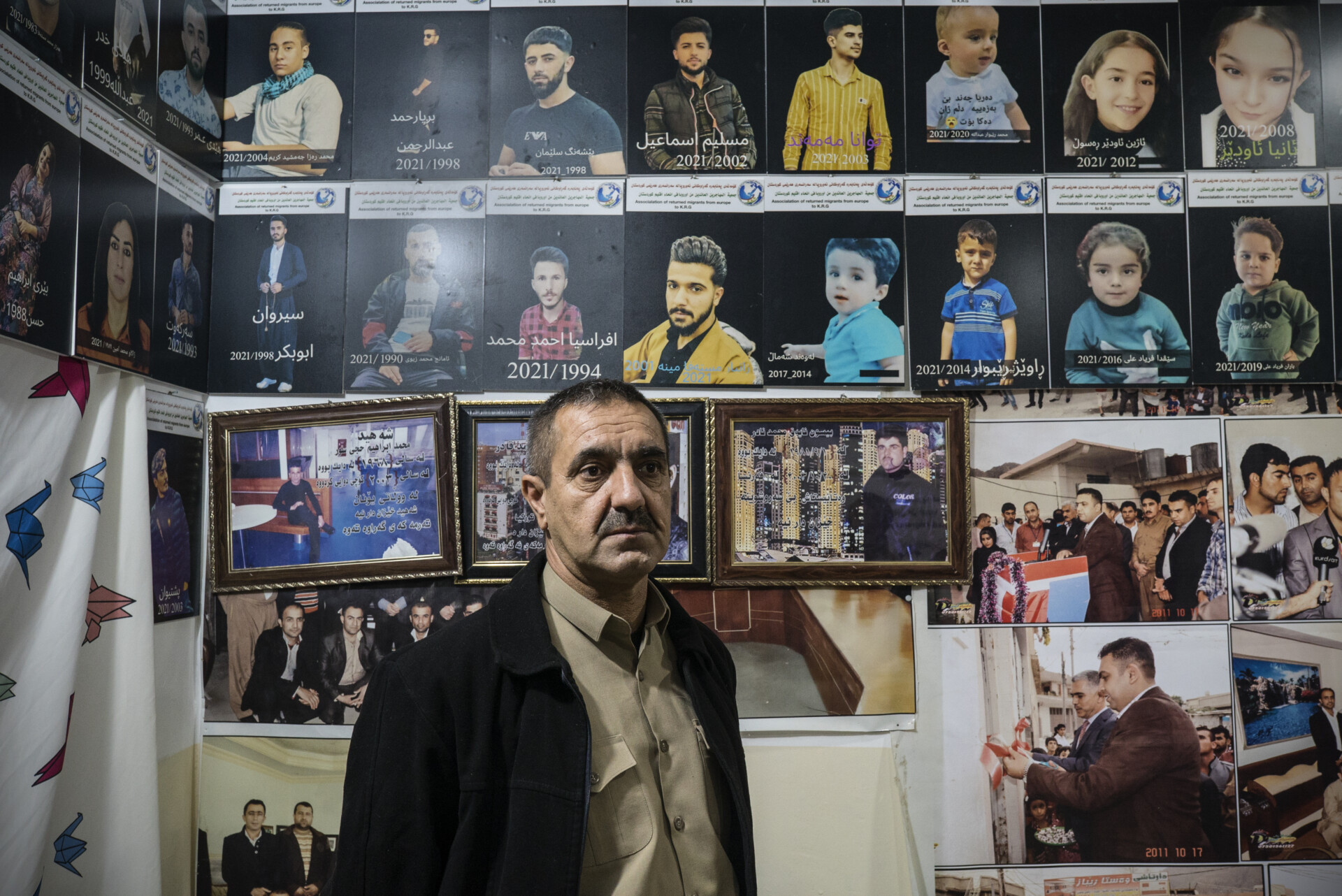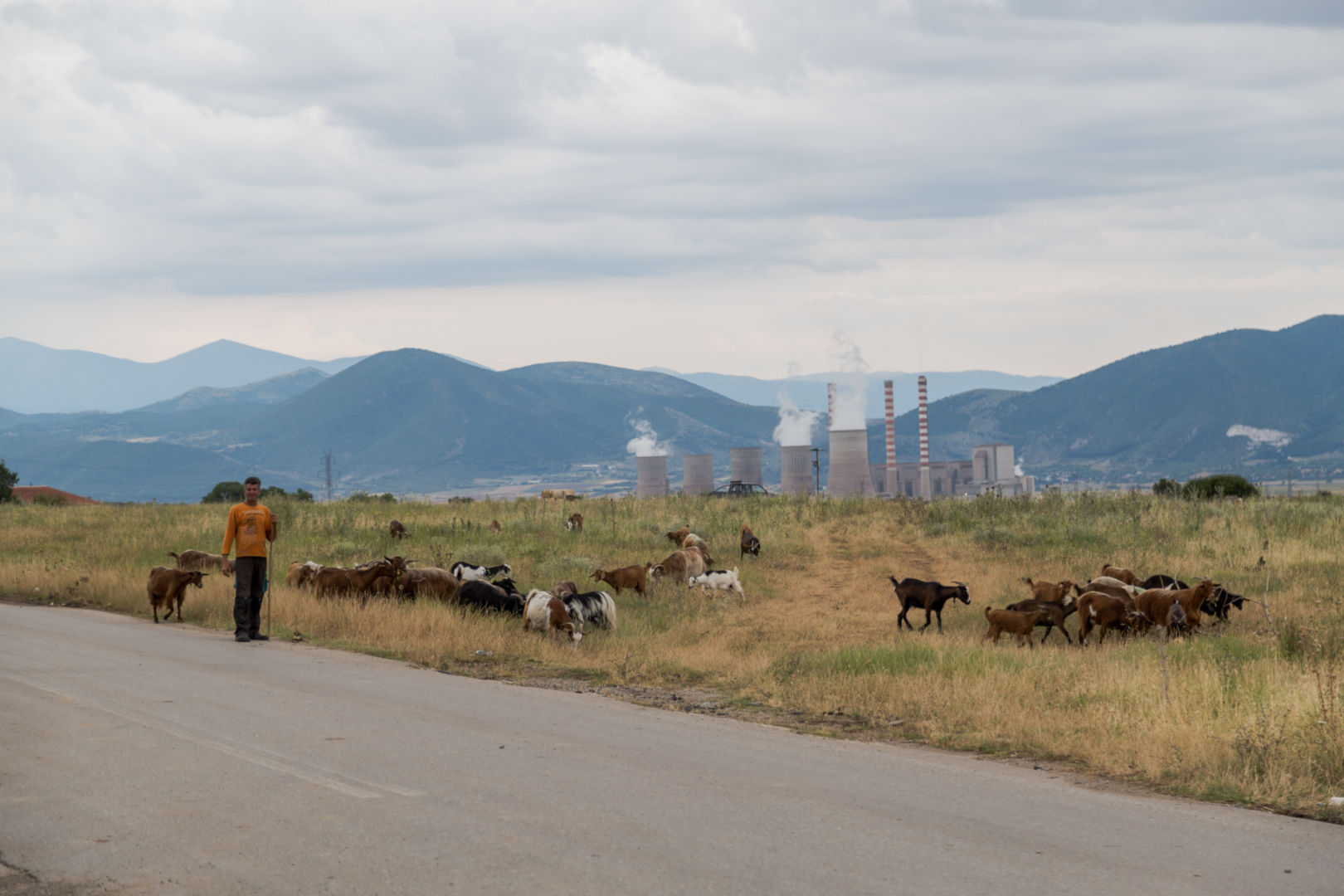In January 2022, two Cuban citizens, Lino Antonio Rojas Morell and Yudith Pérez Álvarez, presented themselves to the Greek authorities in the Evros region to request asylum, after entering the country illegally.
The police officers who the couple approached, didn’t just ignore their request. They forced the couple into a van, and transported them to the police station where they confiscated their backpacks and mobile phones.
The next day, before the couple was deported to the Turkish side of the border along with dozens of other people of different nationalities, they were again searched by the police.
“The one who seemed to be the leader put my money, €375, in his pocket,” explains Rojas Morell, adding that “the police were obviously looking for money.”
“One man wanted to look down my pants. They touched my chest and between my legs,” says Pérez Álvarez, in a claim she recently submitted to the United Nations Human Rights Council (UNHRC).
A year later, they are still traumatized by the violence they experienced during their alleged deportation to Turkey. Despite it being uncommon for Cubans to enter the EU in this way, their case is far from unprecedented — and highlights a practice that has become more frequent in recent years in the landlocked southeastern tip of the European Union.
Cubans in Greece?
The vast majority of Cubans who leave their country try to reach the US. But the tightening of US immigration policy has driven some Cuban dissidents to travel halfway across the globe: they fly to Russia -one of the few countries that don’t require a visa- and from there some head to the Polish-Belarusian border, others go to Estonia, while some take a second flight to Serbia and cross North Macedonia to reach Greece, with their final destination being an EU country (usually Spain, Italy) where they can apply for asylum. Greek and foreign media have recorded their stories. (ERT, News247, Reuters, Mother Jones, Al Jazeera)
The Great Robbery: more than €2 million taken from asylum seekers
From September 2022 to March 2023, Solomon, in collaboration with El País, conducted interviews with more than a dozen sources, including employees of various institutions connected to the Greek asylum system, active and retired members of the security forces, Frontex officials, lawyers, experts, and residents of the Evros region.
We also collected the testimonies of eight victims of pushbacks and analyzed each of the 374 claims, as they were recorded by multiple agencies, describing the pushbacks of over 20,000 asylum seekers from Greece to Turkey via Evros during 2017-2022.
The findings of our investigation indicate a clear modus operandi of the Greek authorities in recent years:
- asylum seekers are arrested when they enter Greece illegally, without being given the opportunity to apply for asylum (as required by both Greek and international law)
- sometimes they are arrested in various parts of the mainland, although they may already be registered or have already been granted asylum
- they are brought to various places (police stations, barracks, abandoned warehouses), where often people in uniform or civilian clothing physically assault them and take their belongings before they are transported to Turkey in inflatable boats
The data collected allows us to conclude that, during the last six years, members of the Greek security forces have stolen more than €2 million in cash (at least €2.2 – 2.8 million) from asylum seekers.
This amount is based on conservative estimations, without taking into account the value of mobile phones and other valuables (rings, bracelets) taken from victims. In addition, it is highly likely that these cases are just the tip of the iceberg, as the vast majority of pushbacks go unreported.
A second key point that our joint investigation revealed, is that a few years ago, the practice of stealing money and personal belongings was not as prevalent, but it has progressively become a systematic tactic.
“When you confiscate their phones, you eliminate any evidence that they were there. When you confiscate their money, you make their lives more difficult. When you strip them naked, another trend that’s on the rise, you humiliate and demoralize them,” comments Eva Cossé, senior researcher at Human Rights Watch in Greece.
“It’s part of a strategy to prevent them from trying to cross the border again,” she adds.
A systematic practice
“We’re not talking about some isolated incidents, because in recent years they’ve become part of a systematic operational practice,” comments Hope Barker, representative of the Border Violence Monitoring Network (BVMN), which consists of twelve organizations that collect testimonies about illegal pushbacks of asylum seekers at EU borders.
Barker says that BVMN initially noticed the practice of confiscating the belongings of asylum seekers at the Croatian border around 2017. In that context, however, the clothes, phones, and money that were taken, were thrown into fires to be destroyed.
“In Greece, around 2019, it was a more random practice. Some were stripped of their possessions, others were not. But in recent years it has become an established tactic. Phones are sometimes kept, sometimes destroyed — but money is definitely kept. And it’s common for them to beat someone even more as punishment if they find out they’ve hidden their money,” Barker says.
This happened to two young Moroccans, who on November 1, 2022 were deported along with fifty others.
They were in a detention center, then were transferred to Evros, where they were registered again. The two young men said that “at the detention center the officers had already taken all our belongings, so the [other] officers should have known, at this stage, that we had nothing else on us.”
When they stated that “we [told them] we had no items left,” the officers then became violent towards them, the BVMN report affirmed.
Frontex sources confirm the illegal pushbacks
In a case against the Greek state being heard at the European Court of Human Rights (ECHR), the UN High Commissioner for Refugees has provided evidence of 311 incidents in which “at least 6,680 people” were pushed back through Evros to Turkey.
Two sources from Frontex, (the European Border and Coast Guard Agency) that have an increased presence in Greece, confirmed to Solomon and El País that pushbacks are now a normalized reality.
“We do it, just like [other countries] do it. Except that they’re not as hostile [toward asylum seekers] as we are,” acknowledges one of the two sources.
An institutional source who spoke on the condition of anonymity stated that “asylum seekers who enter Greece and follow the asylum procedure have said that it’s their second or third attempt. Some make even more attempts, because they were previously pushed back to Turkey.”
The same source adds that there is now a “great escalation in the use of violence and humiliating practices. It’s the lowest level of respect for human life.”
2022: confiscating their money in 92% of cases
We asked the Greek authorities specific questions, asking to be informed regarding any ongoing investigations into the recorded pushbacks, and what procedure is being followed in terms of the money and personal belongings that are confiscated from the asylum seekers.
In its reply to our queries, the Ministry of Migration & Asylum reaffirmed its commitment to the protection of human rights, but did not offer any specific answers.
From the analysis of the recorded pushbacks of the last six years, an increasingly disturbing pattern emerges: the culmination of the Greek border guards’ interest in stealing money from asylum seekers.
While in 2017 stealing money was reported just in 11% of pushback cases, by 2022 that figure skyrocketed to 92%.
The data from our analysis is confirmed by the interim report of the relevant Recording Mechanism created by Greece’s National Commission for Human Rights (GNCHR ). It is noted that the GNCHR is an official, independent advisory body of the Greek state.
Based on the incidents recorded by the GNCHR alone (which do not include those recorded by UNHCR), the report estimates the minimum number of people pushed back between 2020-2022 to be 2,157 people.
During the presentation of the report in January 2023, the GNCHR confirmed to Solomon and El País that in 88% of the cases the victims stated that they had suffered violence, and in 93% of the cases that their possessions and money had been taken.
According to the report, the victims of the pushbacks come from countries with high rates of asylum (Syria, Afghanistan, Turkey, Iran).
Minors kidnapped from the mainland
The GNCHR report confirms a trend that has also been highlighted by journalistic investigations in recent years: the abduction and pushback to Turkey of people who were living in Greece, already registered or who were already granted asylum.
Solomon and El País recorded the testimony of Amir, an unaccompanied minor from Afghanistan who, in the summer of 2020, lived in a hostel in Thessaloniki.
On August 25, 2020, as Amir waited at the bus station, a group of plainclothes men surrounded him and forced him into a black van with tinted windows.
Twenty other refugees and migrants were in the van, which traveled eastward for about 350 kilometers, arriving near the Evros River. There they were detained and, hours later, their belongings were confiscated and they were taken by boat to Turkish soil.
“I tried to explain to them that I had papers, but they were very aggressive. Every time you tried to talk to them, they would hit you,” explains Amir.
His name has been changed to protect his identity, but his testimony was confirmed by a social worker at the hostel as well as two of his friends. In photos shown to Solomon, Amir is pictured smiling by their side, in Greece.
Planned operations
Hope Barker, from the BVMN, comments that since the crisis on the Greek-Turkish border in March 2020, not only have “hot pushbacks” (i.e. pushbacks of people found at the border) taken place. Operations have extended inland for hundreds of kilometers.
“People are being arrested in different cities, in many cases even though they have valid documents or are in the process of seeking asylum,” she says. “They are detained in these kinds of secret places, unable to communicate, until enough people are rounded up, 80 or 100, and then transported to Turkish soil. This is a large state operation.”
The range of operations underscores the indications that it’s an organized plan.
“If raids are carried out in different parts of Greece, there is definitely a government order. Because this requires the mobilization of resources, the existence of detention facilities and the participation of different police units, not just some police officers from the Evros region,” comments Eva Cossé of Human Rights Watch.
The GNCHR report records seven instances of pushbacks in which the victims were located inland, compared to 24 cases in which they were located in the Evros region.
The isolation of border residents
During Byzantine times, “Akrítes”, or citizens who lived in border areas, guarded the borders of the empire from raids from the east.
Today, the residents of Evros are often compared to the Akrítes, and historically, politicians have always viewed them in special regard. For example, Prime Minister Kyriakos Mitsotakis recently announced that in the upcoming elections he will (also) be a candidate in Evros.
But today, Evros exudes abandonment. It is not difficult to see that the region’s opportunities are extremely limited.
A source in the city of Orestiada explains that many young people, who haven’t tried their luck in Thessaloniki or Athens, dream of a job in the border guard or the army: “they earn more than the minimum wage and have a secure job for life.”
In November 2022, when we visited the village of Nea Vyssa, four kilometers from the Turkish border, the streets were deserted. Activity was minimal, and was limited to the cafe in the village square.
In the cafe’s courtyard, protected from the cold by a plastic sheet, patrons chatted as they slowly sipped their coffees. They all had gray hair.
One of them was proud that the village once “was one of the largest villages in Greece” and reminded us that the great mathematician Konstantinos Karatheodoris has roots from Vyssa.
The village’s population today has dwindled to less than 3,000 residents and many buildings are deteriorating. Another patron explained that during the most recent announcement of job placements, three boys from the village were accepted into the border guard unit.
In 2020, the president of the European Commission, Ursula Von der Leyen, promised Greece €700 million to protect its borders. Nearby on the Egnatia highway, new Nissan Qashqai police vehicles sped by every few minutes.
In addition to the military, 1,800 border guards serve in Evros, of which 650 were hired last year (2022) with priority given to locals. In January 2023, the opening of another 400 border guard positions were announced.
The institutional source who spoke to Solomon and El País asserted that there are also differences between them: while some border guards simply “follow orders” and send the asylum seekers back, others decide to “exploit” the situation.
“There are police officers who only want to serve along the river,” he comments. “Imagine how much a group can earn if they get €100 or €200 from 100 people. They can make an entire salary in a single shift.”
Mobile phones for the police officers’ kids
On April 3, 2022, police officers in balaclavas arrested a 22-year-old Syrian man in a forest near Evros.
According to the victim’s testimony, (recorded by Josoor, an organization that used to document human rights abuses before it had to disband due to pressure it experienced in Greece and Turkey), the police beat him with clubs and took all his belongings, including his phone, which he was forced to unlock. He was then sent back to Turkey with other asylum seekers.
“When they put me in the car I realized they had a lot of phones and power banks in there. When one of the men took a cigarette out of his pocket, I saw that he had a wad of bills. I think they were taken from others earlier,” he said.
It remains unknown where all the phones taken from asylum seekers in recent years have ended up. But sources from Orestiada explain that the police officers keep the best devices.
“The border guards give them to their kids. They show up at school with new phones and proudly say their parents took them from ‘illegal immigrants’,” they comment, expressing concern about young people who join the security forces and end up adopting “the far-right narrative” that considers refugees to be invaders who threaten the security of the country.
Refugees adapt
Both before and during their journey, asylum seekers share information via WhatsApp, Telegram, and Facebook — so news spreads quickly.
The expectation of their [poor] treatment by the Greek border guards means that they carry less and less money on them. While they used to carry larger amounts, a source from the asylum system explains that now “€50, €100, €150 is the norm”.
A 2021 report on the Balkan corridor by the Global Initiative against Transnational Organized Crime states that “unlike 2015-2016, asylum seekers and migrants now appear wary of carrying large amounts of cash for fear of being robbed by thieves or the police. They tend to access money along the way using money transfer services.”
Differences also exist based on the nationality of the asylum seekers.
In recent years, Cubans (who fly to Russia, then to Serbia, arrive in Greece with the intention of applying for asylum in another country) are the unluckiest: without knowing what awaited them, they often each carried with them several thousand euros.
“Groups of North Africans tend to travel alone or in small groups of two or three, and carry less money. Groups that include families, Syrians and Afghans, tend to be led by traffickers and carry more money,” explains Barker.
“But, certainly, in the last 1-2 years people are more aware of the risks and no one expects to reach Greece on the first try,” she adds.
“They know they will be pushed back to Turkey more than once.”
Methodology
We examined the testimonies of the victims of 374 illegal pushbacks that were collected between 2017-2022 by the following: Border Violence Monitoring Network (188), Human Rights Watch (76), the Greek Council for Refugees (55), Amnesty International (4), other NGOs and local reports (43), as well as by the journalists of this investigation (8).
Some testimonies were rejected because they overlapped in dates or did not include sufficient evidence. In 2022, far fewer incidents were recorded than in the previous two years, because the NGO Josoor, which had collected the most testimonies, decided to disband, due to the judicial and police pressure they experienced by Greek and Turkish authorities.
Testimonies were organized into structured data to be classified by date, place, nationalities and number of people pushed back. It was also ascertained whether the victims reported theft (232 incidents) or not (142). Using this data, the estimated number of asylum seekers present during the pushbacks where theft occurred was more than 13,500.
Although migrants are systematically recorded, sometimes there are some who manage to hide their money, also, not all migrants have cash with them (this is especially true for families traveling together, so only one family member has been counted as a target for theft). Therefore, using the demographic profiles of migrant groups developed by UNHCR and the PRAB initiative (which includes various NGOs and foundations), a 30% deflator was applied to the theft victim base.
Not all testimonies of theft specified the amount stolen but 62 testimonies did specify amounts (five were rejected for the calculation because the amounts stolen were so large that they could be misleading). With this data, a statistical distribution was created, of the most frequently confiscated amounts. The distribution was applied to the deflated victim base in order to derive an estimate of the money stolen from migrants. The results show that between 2017 and 2022, between €2.2 and €2.8 million were stolen – these estimates are conservative, as many victims do not report being deported or robbed.




